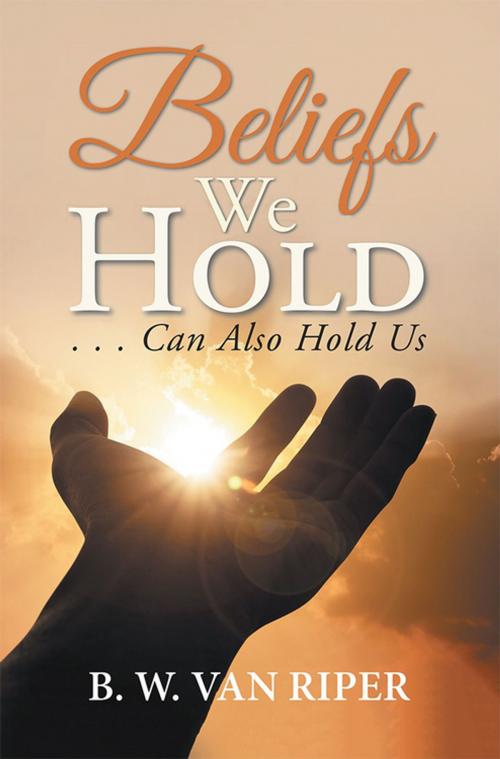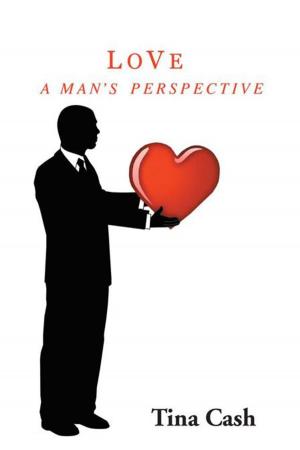| Author: | B. W. Van Riper | ISBN: | 9781546236573 |
| Publisher: | AuthorHouse | Publication: | July 18, 2018 |
| Imprint: | AuthorHouse | Language: | English |
| Author: | B. W. Van Riper |
| ISBN: | 9781546236573 |
| Publisher: | AuthorHouse |
| Publication: | July 18, 2018 |
| Imprint: | AuthorHouse |
| Language: | English |
Beliefs We Hold is about blind beliefs that are not only gripping but also toxicas in zealotry or mania. They can enthrall some people who hold them doggedly, contaminating such guardians as well as those around them. One such case epitomizes how a sentinel can both hold beliefs and become held by them, a prime example of the unique relationship between beliefs gone rogue and the severe consequences that can ensue from mindless tenacity. Probably no beliefs are more deeply or faithfully held than religious beliefs. More than just influential, religious beliefs can be crucial in the lives of many people. And because they can determine both the nature and extent of conviction, religious beliefs can range in their effect from material to manic. Looking but not seeing. Riveting beliefs. Become crippling. Victimizing. That was JD, contaminated by fervor. Overwhelmed by religious beliefs that he could neither uphold nor disclaim created a dilemma for JD that took away his mental health and replaced it with mental illness. His struggle to find peace of mind was grueling, also contagious. So those around him who inadvertently caught the bug experienced much of the stigma that JD faced. JD was the victim not only of mental illness but also of the obsessive need of his attending psychiatrist to discover a bond between immanent beliefs and conspicuous pathology. In juxtaposition and in conflict with the attending was the chief of staff, who saw his vital duty as essentially the rendering of psychiatric service over any research mandate. The clash of egos and objectives that defined the aspirations of the two psychiatrists hindered JDs return to mental health. Still, in spite of cruel circumstance and after numerous traumatic events in house, JD finally benefitted from a change in psychiatrists. On the road to recovery, JD learned that he was, in a sense, crazy about God. What irony, he thought. Because it was that oddity that led him to understand how beliefs we hold . . . can hold us and, coincidentally, how he was initially seized by the intractable imperative. Inevitably and paradoxically, he had to give some credit to the gods of his imagination for bringing him down to earth. In a final reconciliation with divinity, he realizes that neither the Divine Comedy nor a divine tragedy had the ability to touch his soul, cater to his spirit, or fulfill his needs. It was, instead, a divine remedynot simply a matter of freeing himself of beliefs but, rather, of holding beliefs that are freeing.
Beliefs We Hold is about blind beliefs that are not only gripping but also toxicas in zealotry or mania. They can enthrall some people who hold them doggedly, contaminating such guardians as well as those around them. One such case epitomizes how a sentinel can both hold beliefs and become held by them, a prime example of the unique relationship between beliefs gone rogue and the severe consequences that can ensue from mindless tenacity. Probably no beliefs are more deeply or faithfully held than religious beliefs. More than just influential, religious beliefs can be crucial in the lives of many people. And because they can determine both the nature and extent of conviction, religious beliefs can range in their effect from material to manic. Looking but not seeing. Riveting beliefs. Become crippling. Victimizing. That was JD, contaminated by fervor. Overwhelmed by religious beliefs that he could neither uphold nor disclaim created a dilemma for JD that took away his mental health and replaced it with mental illness. His struggle to find peace of mind was grueling, also contagious. So those around him who inadvertently caught the bug experienced much of the stigma that JD faced. JD was the victim not only of mental illness but also of the obsessive need of his attending psychiatrist to discover a bond between immanent beliefs and conspicuous pathology. In juxtaposition and in conflict with the attending was the chief of staff, who saw his vital duty as essentially the rendering of psychiatric service over any research mandate. The clash of egos and objectives that defined the aspirations of the two psychiatrists hindered JDs return to mental health. Still, in spite of cruel circumstance and after numerous traumatic events in house, JD finally benefitted from a change in psychiatrists. On the road to recovery, JD learned that he was, in a sense, crazy about God. What irony, he thought. Because it was that oddity that led him to understand how beliefs we hold . . . can hold us and, coincidentally, how he was initially seized by the intractable imperative. Inevitably and paradoxically, he had to give some credit to the gods of his imagination for bringing him down to earth. In a final reconciliation with divinity, he realizes that neither the Divine Comedy nor a divine tragedy had the ability to touch his soul, cater to his spirit, or fulfill his needs. It was, instead, a divine remedynot simply a matter of freeing himself of beliefs but, rather, of holding beliefs that are freeing.















